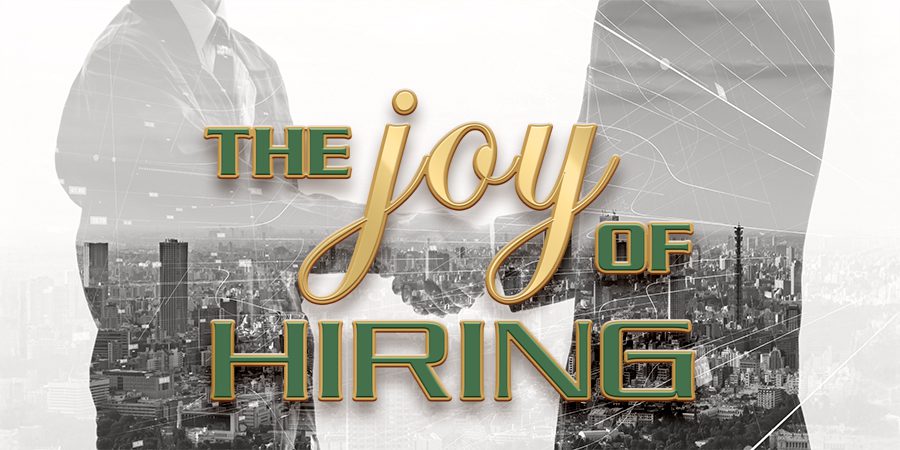Now is the time of year that we start thinking about what we’ll do differently next year. We make New Year’s resolutions, set goals, and make other commitments in hopes of a better future.
Imagine what the next year and beyond might look like if you could change how the world perceives you. How different would things be if the world’s perception of you was different than it is now?
How the world occurs for you reflects your perception of the world. If you’re a positive thinker, you see the world as an opportunity to create something new and exciting in the future – a future that is empty and meaningless until you create and act on it. If this is you, congratulations, and Happy New Year!
However, some people see the world as always working against them. “Nothing ever goes right. As soon as I think I have a handle on things, something always goes wrong.” If this is you, this article is especially for you.
I knew someone who habitually answered the question, “How are you doing?” by saying, “Things are great, but I’ll get over it.” Even though he meant it as a joke, his subconscious mind didn’t recognize it as a joke. Our subconscious minds can’t differentiate between positive and negative, seriousness and sarcasm, or do do’s and don’t do’s.
For example, if I’m about to hit a golf ball over a pond, and I say to myself, “Whatever you do, don’t hit the ball into the pond,” my subconscious mind only hears, “Hit the ball into the pond.” Then my subconscious mind takes over, and, SPLASH, into the pond it goes.
Now, back to the story, how do you think this fellow’s life went for him? You’re probably thinking, not so well, and you’re right. His life was a series of misfortunes that included career disappointments, business failure, illness, broken relationships, and more.
This is my story. If it weren’t for a good friend who cared enough to grab me by the ears and help me see that the world was occurring for me exactly the way I perceived it, who knows how my life would have ended up?
Through self-discovery counseling, I discovered that I suffered from low self-esteem and believed that I didn’t matter, resulting in the unfulfilling life I was living. I began by replacing that negative answer with, “I’m winning.” That one simple change wasn’t the total solution, but it was the beginning of setting my life on a new trajectory. Soon, I was, in fact, winning. I discovered how to live a life I love.
Have you ever considered that truth is perception? What you believe or perceive to be true isn’t necessarily what another person thinks. Now consider how freeing it would be if you could just let go of the need for others to see things as you see them. In other words, you’re detached from worrying about how others perceive you. Not only would the world occur differently for you, but you would occur differently for the world.
There are many books by people far more informed than me about changing your life by changing your thinking and I’ve read a lot of them. However, aside from the Bible, the one that’s had the greatest impact on my life is called “The Four Agreements” by don Miguel Ruiz. It provides four simple habits that can change your effectiveness by changing how you perceive the world, which, coincidentally, changes how the world perceives you. The following is my perception of the four habits. I hope they help you too.
#1 – Be Impeccable With Your Words
Words are powerful. They can create and destroy. With a word, you can plant a seed – a thought that grows into a magnificent life full of accomplishments and meaning. Or you can thoughtlessly cast negative spells, ruining people’s lives by expressing negative opinions about them.
Being impeccable with your words is your responsibility. It not only applies to how you talk with or about others but, more importantly, it applies to self-talk. How you talk with and about yourself will ultimately show up in your life and impact how your life affects others.
The Golden Rule says to treat others as you’d like them to treat you. Begin with treating yourself with love and respect. Self-rejection is one of the biggest mistakes you can make. You still take responsibility for your actions, but you don’t judge, blame, reject, or devalue yourself for making mistakes.
Being impeccable with your words involves integrity. Say what you mean and mean what you say. Be encouraging and give positive affirmations to others and yourself. Be impeccable with your words; you’ll feel good; you’ll feel happy and at peace.
On the other hand, if your words are harmful, others will respond accordingly. Don’t be mean, cruel, rude, or judgmental. Don’t spread malicious gossip, make sarcastic insults, or tell lies (no matter how white). The spells you cast with harmful words will ultimately return to you.
By being impeccable with your words, you’ll clean your mind and body of the emotional poisons within you. You’ll begin seeing the changes that can happen in your life – first in the way you feel about yourself and then the way you deal with others and how they, in turn, deal with you.
Your words can change the trajectory of your life and the lives you touch, leading you to personal freedom, success, and abundance. Be impeccable with your words.
#2 – Don’t Take Anything Personally
From an early age, we learn to take everything personally. We think everything is about us – me. We even think other people do the things they do because of us, but people live in their own minds and a world completely different than yours.
How do we act when we take things personally? We’re easily offended and feel the need to defend our beliefs. We create conflicts and make mountains out of molehills because we want to be right by making others wrong.
Remember that your point of view is yours – it’s your truth based on your experiences and beliefs. Likewise, other people hold perspectives based on their experiences and beliefs. If someone gets mad at you because of your perspective, don’t take it personally. They’re taking it personally because that’s what people do. Don’t fall into that same trap.
If you’re always worried about what other people think (good or bad), you’re taking things personally. Don’t trust what others say, do, or think. You only need to trust yourself to make responsible choices.
You’re not responsible for the actions of others toward you. You are only responsible for yourself. Once you get this, you’re less likely to be hurt by careless comments or actions of others who live in their own world and take things personally.
By not taking things personally, we become immune to the emotional garbage other people try to feed us. You’ll live without fear of rejection, guilt, and self-judgment, following your heart and living with inner peace and happiness. This immunity is the primary gift of this habit.
#3 – Don’t Make Assumptions
The problem with making assumptions is that we believe they’re true. Related to the first two habits, if we make assumptions about what someone is thinking, we take it personally, and react by saying something harmful – not impeccable.
The biggest assumption we make is that everyone sees life the way we do. We assume others feel, think, and act like us. Oddly, this is why we fear being ourselves around others. We think they’re going to judge us, victimize us, and blame us just like we do to them.
We make assumptions because we’re afraid to make requests or ask clarifying questions. We literally dream up imaginary circumstances, making assumptions, and defending our assumptions as facts. We assume the other person knows what we want, and we don’t need to tell them or ask them to do it. When they don’t do what we assume they should do, we feel hurt or mad, thinking they should have known. (By the way, being on the receiving end isn’t all that great either.) Asking clarifying questions is the best way to keep from making assumptions.
This new habit can transform your life. Imagine if others know what you want them to do. All it takes is the impeccable integrity of your words to ask without the fear of rejection and not taking it personally if they say no. This is the path to personal freedom – don’t make assumptions.
#4 – Always Do Your Best
Doing your best requires action. Without action, none of the previous habits matter. However, your best isn’t going to be the same from one moment to the next.
You can only do your best under the prevailing circumstances. You likely won’t perform as well when you’re tired, sick, or drunk as you will when you’re refreshed, healthy, and sober. However, you can still do your best under these adverse circumstances.
By always doing your best, you won’t subject yourself to the frustrations associated with guilt, regrets, and second-guessing. If you’ve done your best and your inner judge or peers question you, you’ve got the answer, “I did my best. I have no regrets.”
If you take action and always do your best without attachment to a reward for doing it, you’ll get more joy out of doing it, and the rewards will take care of themselves.
The first three habits will only work if you do your best. Don’t expect that you’ll always be impeccable with your words, that you’ll never take anything personally, or that you’re never going to make another assumption, but you can always do your best. Sometimes, your best includes making mistakes, but learn from them and keep practicing.
See how the four habits play a role in this story. Going into the final round of 2011 Masters Golf Tournament, then 21-year-old Rory McIlroy had a comfortable lead and was positioned to become the first Irishman to win the prestigious tournament. The press corps was relentlessly pressing him for predictions, and he said, “I know how leads can dwindle away very quickly. I have to go out there, not take anything for granted, and play as hard as I’ve played the last three days. If I can do that, hopefully things will go my way… we’ll see what happens.”
That day, McIlroy’s lead disintegrated, and he finished in 17th place. When an obnoxious reporter asked him how he felt this would impact his future career, Rory replied, “If this is the worst day of my life, I’m going to have a great life.” Though he has yet to win the Masters, he went on to become the world’s number one golfer and has won four majors. Today, he describes that fateful day as, “… the most important day of my life.”
Everything you’ve mastered in life has come through practice and repetition. Mastering these four habits can change the trajectory of your life.
Happy New Year!
About the author — Thom Tschetter has served our industry for over four decades. His article topics come from our readers and Thom’s years as a speaker, writer, certified arbitrator, business consultant, and his own in-the-trenches experiences. Thom owned a chain of award-winning transmission shops in Washington State, and ATRA presented him with a Lifetime Achievement Award for his years of training for the transmission industry.
Learn more about Coach Thom Marketing and get unlimited free access to sales and marketing articles and videos in our online library. Initial consultations and guidance are always free.
CoachThomMarketing.com
Phone: 480-773-3131
Email: coachthom@gmail.com















